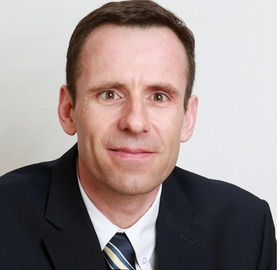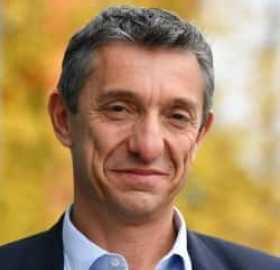At the start of the 2023, Games-qualifying world championships, World Rowing has some very thorny issues on its plate. Gender fairness, the imminent removal of lightweight rowing from the Olympic Games (without any guarantee of a replacement), and the impact of war on international sport are minefields over which head honchos Jean-Christophe Rolland and Vincent Gaillard are tiptoeing with immense caution.

We’ll be getting an update from them today, but back in June the two rowing chiefs held a press conference at which they laid out the story so far. If there’s one theme, it’s accountability, or at least that particular form which sports federations must remember when taking far-reaching policy decisions. Whilst they tend to give the lead to the countries within their membership, they must also reflect the fairest outcome for that community, especially on contentious issues.
One of the trickiest is that of gender determination, not least because World Rowing has to tread the line between what the IOC and IPC may decide impacting all sports federations, but also because laws vary across countries. In March of this year World Rowing announced a change to the bye-law to Rule 13 preventing those who went through puberty as a natural or assigned male with male hormonal levels from competing as female in the international sport, even if they transitioned to female after puberty. Anyone not eligible to compete as a woman can compete in the men’s events. This follows similar decisions at other levels of international sport to try and rebalance fairness for all, and was accompanied by a drop in the permitted level of testosterone in people who have transitioned from male to female for the 2 years before competition.
“This is a very sensitive and complex topic”, president Rolland began at the June press conference. “Our society is evolving and sport has to adapt to this evolving society, that’s why we are in a continuous improvement mode, including in the rules of racing. Now we have the possibility for individuals to change gender, and it could impact fairness so we have to deal with the situation. We have been dealing with this for quite a while, but always looking at the different angles. There is a medical aspect, but also a social aspect, an ethical aspect and a legal aspect. Obviously you cannot have every single situation in the rules so you have to adapt the rules”.
“We have a dedicated working group that had worked on the specific subject, and there was an evolution of our rule number 13 about men and women [in rowing]. This doesn’t mean it is the end of the process. The rule we are having now is the outcome of the process taking into account the scientific knowledge including the different stakeholders, that we had at the time. We will continue to progress with studies, surveys, analysis and projects, and we will continue to adapt. For the specific transgender issue [of hormone levels] we have moved from [no more than] 5 nanomoles of testosterone over 12 months to 2.5 nanomoles over 24 months. And we do have a panel of experts who will address it on a case by case basis so that we can understand.”
He also stressed that the numbers of high-level trans-athletes (particularly from male to female) has not yet been high which hampers the ability to analyse the data, which flags up that future changes may yet be required. “I do respect the different opinions about fairness on one side and inclusion on the other: we don’t want to exclude but at the same time fairness for us is a key priority. But we can only move with the full rationale, we cannot just make a rule based on emotion. I do believe that the way we proceeded was the right way but is it the end of the story? No, we will continue to adapt and if we need to take another step we will do so.”
“What was clear from the various stakeholders is that the idea of a blanket ban of transgender [competition] in sport is no longer an option”, added executive director Gaillard. “Legally speaking it just doesn’t stand. So inclusion in one way or another needs to be the solution, it just needs to be how we go about it and with what framework.”
“The rule we’ve changed is because in some countries in the world the gender on your passport is a declaration”, added Rolland. “There are some countries where you can go to the administrative authority and say you want this gender on your passport and you get it without any kind of reason. So in the past Rule 13 was that only if you have female on your passport can you participate in women’s [rowing] events. That cannot be the situation now. The definition of man and woman have become more complex”.
* * *
Having got that knotty area out of the way, on to other competitive questions. Later this year the decision will be taken whether to replace the lightweight doubles, which are being dropped from the Olympics from 2028, with beach sprints, thus preserving the rowing numbers while opening a new discipline.
The two aren’t necessarily linked, but it’s already definite that the lightweights will be leaving the Olympics 32 years after they joined the programme: World Rowing cannot stop this and never could. “You know the full story of the long journey, and that the lightweights have been challenged by the IOC”, said Rolland. “The final events programme will be decided by the IOC in December 2024. But we have this intermediate deadline, which is an evaluation of the different disciplines of the sports on the programme. In this evaluation World Rowing has submitted a proposal, since lightweights have been withdrawn from the programme, to include coastal rowing of the beach sprints format”.
“This was submitted last year in June”, said Rolland. “The evaluation by the IOC sport department has been presented to the Olympic programme commission, that has made a recommendation to the IOC executive board. The IOC executive board [meeting] was initially due to be on 7th June, was postponed to 20th June, then we received notification that this decision has been postponed again to mid-September. The reason is simple, I can’t go into the reasons, but the rationale is simply that the IOC executive board should decide on all the disciplines [at one time]. They want to make these announcements [all] at once. We are still in the same position, we believe we have a strong position, we don’t know the answer.”
That was back in June and hopefully the news will come soon, if not this week. “I remain optimistic but also very prudent”, said Rolland. “You know how excited we are about this decision, we are looking for this decision for so long, and I was clear from the very beginning this was a very tough one and we have no guarantee. We stay prudent, calm and very committed. We continue to fight in a constructive way and I hope that it will be a positive decision.” The decision, he further explained, will also depend on complexities involving modern pentathlon, boxing and weightlifting which have had political and organisational problems, and/or asked for new disciplines, the resolution of which will also affect athlete numbers and budgets for other sports.
* * *
A globally delicate issue is the one of Russian and Belarussian athletes competing internationally, given the state of war which exists between Ukraine and Russia after the latter invaded the former. The situation has been changing throughout the summer, as international sports bodies test out methods to allow unmartial athletes to take part fairly, and now we have an Individual Neutral Athlete (AIN, in the French abbreviation, or INA in English) arrangement, to be eligible for which Belarussian and Russian athletes cannot have shown any sign of support for Russia’s war and must race without any visible affiliation to their country.
But there’s an interesting wrinkle to this which Rolland explained in June. The IOC determined that sports federations belonging to it could have only individual athletes racing under the AIN banner, not teams. Yet rowing has allowed AIN pairs as well as singles at the worlds and previously at this year’s under-23 worlds. Although no AIN crews entered the under-19 worlds they would have been aloowed in every category except eights and coxed fours. “When we speak about team sport, rowing is not considered as a team sport”, Rolland explained. (That raised eyebrows in the room!)
“In the Olympic movement, in the IOC, what they call team sport is very specific to when you have two teams competing together on the field of play”, he continued. “So it’s about football, volleyball, netball, rugby, because you have a tournament — this is what they call team sport. In French we do have a different word which does not exist in English . We say ‘sport collectif’ and ‘sport individuel’. ‘Sport collectif’ is as I said, two teams on the field of play. Rowing is not considered a sport collectif and it is for the individual federations to apply the recommendation. Canoeing is also considered an individual sport so they have opened AIN to all events. We had a long discussion internally, this was not decided in just a second, different opinions were put on the table. It’s not an easy one, we do appreciate also the sensitiveness of such a topic. We believe this [1x and 2-] is the best decision for our sport not only in this environment but also for the future.”
“In the end this is about the fundamental value of sport, the position of sport in the world. Sport is part of society so definitely has a link with politics. All society’s challenges, basically you find them in sport. But we don’t want sport being a tool for politicians. We want to keep politics outside of the sport as much as possible. The values we have in the Olympic Charter but also in [World Rowing’s] statutes: if you look at the first article, sport is made to make bridges between people, we are competitors not enemies.”


“It was a possible scenario to open the full event but we came to the conclusion to include the single and pairs, to give an opportunity to both sculling and sweep, and for the juniors we wanted more opportunities for them. We didn’t want to create a generation angry with the world. If there’s a last link between people [at war] it should be sport. But under conditions of genuine neutrality, which will be monitored and controlled, so they do represent themselves as individuals. No colours, no flags, no mention of the country, nothing at all. A background check [for neutrality] and an addition, I stress additional, anti-doping test. They have already been tested, they are clean but we want to avoid a suspicion in the world of rowing.”
This latter point was because Russia and Belarus were banned from all international sport when Russia invaded Ukraine with the full support of the Belarussian government, and so they have been hidden from the world even though anti-doping has been going on throughout.
* * *
So the world governing body is juggling a slew of balls at the moment, and the worry lines deepen daily on Rolland and Gaillard’s foreheads. That’s without discussing the international federation’s budget, the weirdness to the sport of having a 1500m course at the Los Angeles 2028 Olympics, and how to build bigger audiences for such a niche sport. There is no shortage of difficult areas to tackle.
Rachel Quarrell, 6th September 2023
